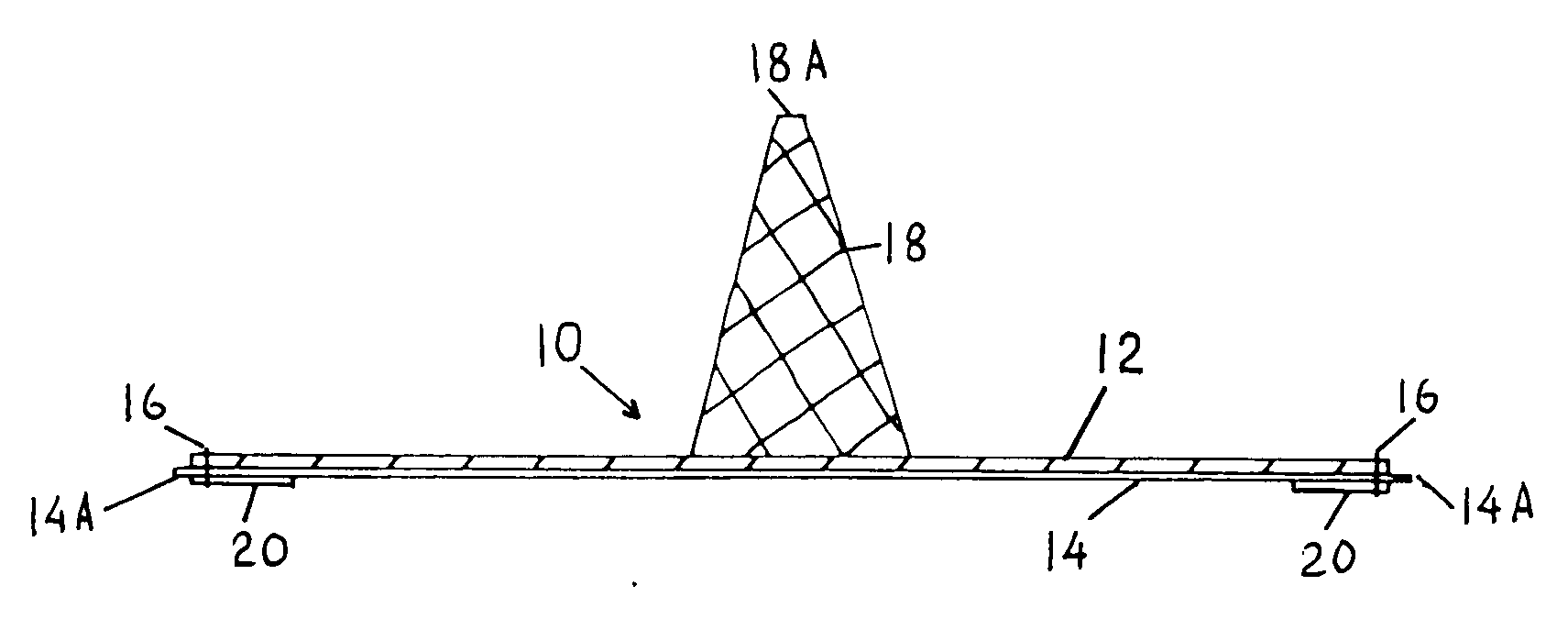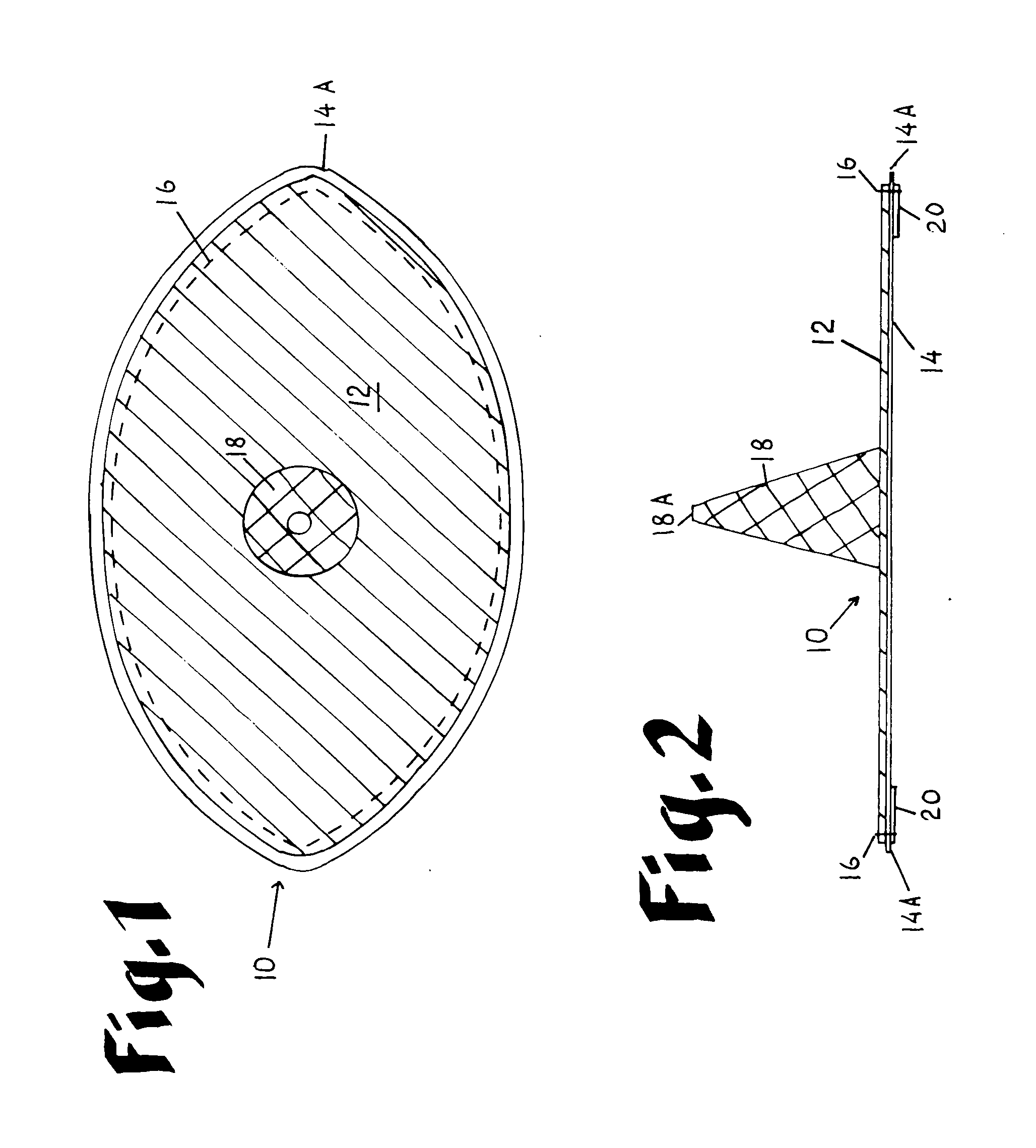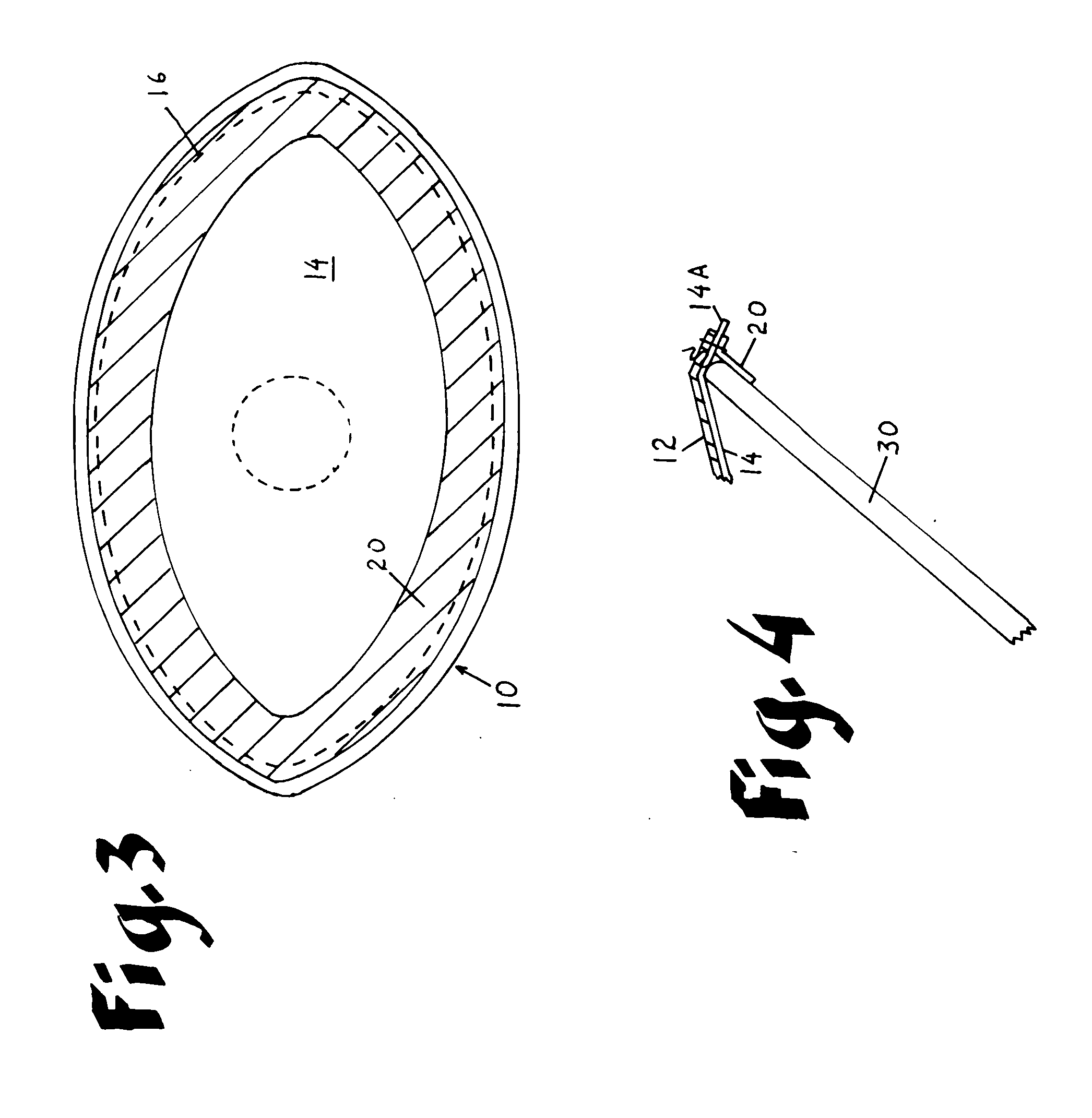Laparoscopic inguinal hernia prosthesis
a laparoscopic and inguinal hernia technology, applied in the field of surgical implants, can solve the problems of high incidence of hematoma or seroma formation, high risk of nerve or vascular injury, and use of general anesthesia and expensive laparoscopic instruments, so as to prevent adhesion, promote tissue ingrowth, and overcome limitations
- Summary
- Abstract
- Description
- Claims
- Application Information
AI Technical Summary
Benefits of technology
Problems solved by technology
Method used
Image
Examples
Embodiment Construction
[0025] With reference now to the drawings, FIGS. 1-4, depict a preferred embodiment of a laparoscopic inguinal hernia prosthesis, generally referenced as 10, in accordance with the present invention. Prosthesis 10 comprises a composite prosthesis for laparoscopic repair of inguinal or femoral hernias, and also for the laparoscopic repair of large incisional ventral hernias. As best seen in FIG. 1, prosthesis 10 is fabricated in a semi-elliptical shape that has been found to adapt quite well to the anatomy of the inguinal area and facilitates the fixing of the prosthesis to the Cooper's ligament.
[0026] Prosthesis 10 includes two different layers, namely an upper layer 12 and a lower layer 14. Upper layer 12 is preferably fabricated from polypropylene mesh to promote tissue ingrowth. Lower layer 14 is preferably fabricated a generally smooth sheet of an adhesion barrier material to prevent adhesion to the intestines. Upper layer 12 and lower layer 14 are secured together with a dark ...
PUM
 Login to View More
Login to View More Abstract
Description
Claims
Application Information
 Login to View More
Login to View More - R&D
- Intellectual Property
- Life Sciences
- Materials
- Tech Scout
- Unparalleled Data Quality
- Higher Quality Content
- 60% Fewer Hallucinations
Browse by: Latest US Patents, China's latest patents, Technical Efficacy Thesaurus, Application Domain, Technology Topic, Popular Technical Reports.
© 2025 PatSnap. All rights reserved.Legal|Privacy policy|Modern Slavery Act Transparency Statement|Sitemap|About US| Contact US: help@patsnap.com



